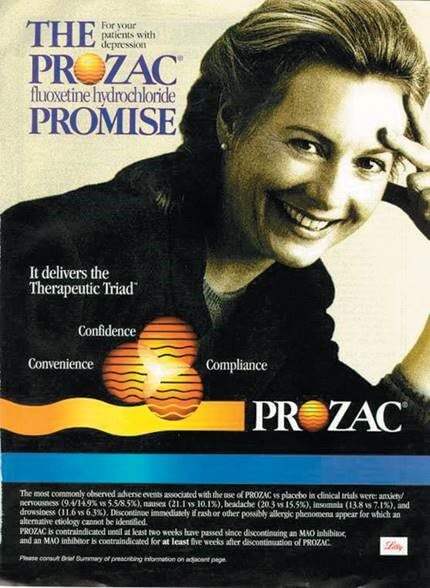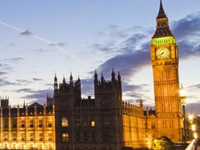
What Might Medical Cannabis Mean for our Children?
Once again, a sick British child is making the news because the government is denying him the medicine that he urgently needs to reduce his suffering. The 12-year-old Billy Caldwell suffered up to 100 epileptic seizures a day until he was prescribed a cannabis-based oil in the US, which slowly brought them to an end. Last month, the Home Office blocked the continuation of Billy’s prescription from his home in Northern Ireland, and confiscated a 6-month supply of the medicine when his mother Charlotte attempted to openly smuggle it home through Heathrow Airport. Billy suffered his first seizure in months less than 24 hours later.
Sadly, this is not an isolated case. Charlotte is just one of a number of parents in the UK who are forced into the ruthlessly unfair position of having to break the law to ease the suffering of their children. What makes this even more bitter a pill to swallow is that the same government that criminalises these medicines, declaring them to be of no therapeutic value, at the same time grants corporate licences for the production and export of medical cannabis – enough to make the UK the largest exporter of licit cannabis in the world. This is a situation that has to change, and the arguments for maintaining the status quo are wearing thin.

Charlotte Caldwell, alongside other parents in the same position, have formed Families4Access, a campaign demanding access to cannabis medicines. Pictures courtesy of VolteFace.
Sceptics often cite the potential harm to young people of any liberalization of drug policy, including the introduction of medical cannabis. The apparent link between heavy cannabis use in adolescence and increased risk of psychosis is one that must be taken seriously, but its relevance to the matter at hand is minimal: a meta-analysis of the link between medical cannabis legislation and adolescent cannabis use, published this year in the journal Addiction, found no evidence supporting such a link.
Only one facet of legislation correlated with increased usage by adolescents: a study in the Journal of Drug and Alcohol Dependence reported that, over seven years of observation, teenagers who were exposed to more medical cannabis advertising were more likely to use cannabis recreationally, or express intention to do so. The 29 US states that have lifted the prohibition on medical cannabis have adopted varying rules concerning prescription, sales, and advertising: although no state sanctions advertising medical cannabis to minors, billboards, magazines, and store signage can still be seen by this unintended audience.
However, in the UK, it is a well-established practice for prescription-only-medicines to be prescribed by GPs and other qualified healthcare professionals on the basis of an informed decision, following consultation with the patient. Because of this, there is a complete ban on public advertising of prescription-only-medicines, including on company websites and social media. This ban would certainly extend to cannabis, so there is no evidence that, when medical cannabis is re-legalised in the UK – it was available on the NHS until 1971 – more young people will try the drug than otherwise might have.

Different advertising standards in the US mean that prescription medicines can be marketed directly to consumers
Given the widely-shared belief that medical professionals are well-placed to make decisions about drug prescriptions, it is telling that, within the House of Commons, it is the doctors who are calling for change. The new All Party Parliamentary Group for Medical Cannabis is co-chaired by former Health and Justice Ministers, includes four MPs who have (or still are) practising medicine, and is estimated to have the support of at least 80 politicians. Having campaigned for 20 years for evidence-based reform to drug laws, Amanda Feilding, Director of The Beckley Foundation welcomes the formation of the new APPG, who will, alongside the All Party Parliamentary Group for Drug Policy Reform, receive an advance copy of our upcoming landmark report on UK policy- Roadmaps to Regulation: Cannabis, scheduled for release later this year.
Away from the media spotlight and the halls of the Houses of Parliament, there are at least 30,000 people in the UK at risk of being treated as criminals when they should be treated as patients, because of backwards-facing medical cannabis legislation that is rapidly leaving the UK on the wrong side of history. Commenting on the current policy landscape, Amanda noted that ‘[s]everal European countries and U.S. states have successfully implemented medical cannabis, which has a wealth of evidence behind it. It is outrageous that, in the UK, political expedience is still being prioritised over patient care. Righting this wrong is straightforward enough. By moving cannabis to Schedule 2, so that doctors can prescribe to those who need it, we can join the increasing number of countries paying attention to the evidence and legalising medical cannabis: a move that is well overdue.’
Eddie Jacobs
Podcast
- All
Links
- All
Support
- All
BIPRP
- All
Science Talk
- All
Amanda's Talks
- All
- Video Talk
- Featured
- 2016 Onwards
- 2011-2015
- 2010 and Earlier
- Science Talk
- Policy Talk
One-pager
- All
Music
- All
Amanda Feilding
- All
Events
- All
Highlights
- All
Psilocybin for Depression
- All
Current
- All
Category
- All
- Science
- Policy
- Culture
Substance/Method
- All
- Opiates
- Novel Psychoactive Substances
- Meditation
- Trepanation
- LSD
- Psilocybin
- Cannabis/cannabinoids
- Ayahuasca/DMT
- Coca/Cocaine
- MDMA
Collaboration
- All
- Beckley/Brazil Research Programme
- Beckley/Maastricht Research Programme
- Exeter University
- ICEERS
- Beckley/Sant Pau Research Programme
- University College London
- New York University
- Cardiff University
- Madrid Computense University
- Ethnobotanicals Research Programme
- Freiburg University
- Medical Office for Psychiatry and Psychotherapy, Solothurn
- Beckley/Sechenov Institute Research programme
- Hannover Medical School
- Beckley/Imperial Research Programme
- King's College London
- Johns Hopkins University
Clinical Application
- All
- Depression
- Addictions
- Anxiety
- Psychosis
- PTSD
- Cancer
- Cluster Headaches
Policy Focus
- All
- Policy Reports
- Advisory Work
- Seminar Series
- Advocacy/Campaigns
Type of publication
- All
- Original research
- Report
- Review
- Opinion/Correspondence
- Book
- Book chapter
- Conference abstract
- Petition/campaign
Search type



